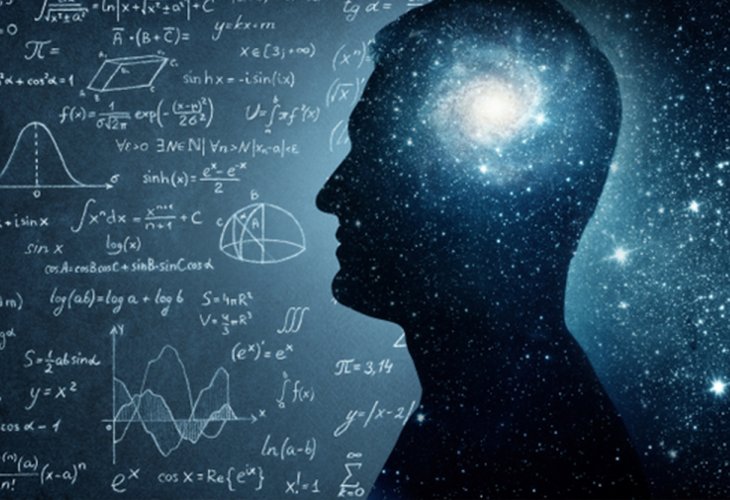Faith
What Is Truth? From Ancient Myths to Science and Absolute Reality
Exploring how cultures, philosophy, and science have defined truth, and whether absolute truth exists
 (Photo: shutterstock)
(Photo: shutterstock)Over the course of history, many religions and worldviews have tried to answer humanity’s most basic questions. Throughout my philosophical encounters, I’ve noticed that even great thinkers have struggled to find solid answers.
During the Viking era, people sought explanations for natural phenomena such as plants growing in the fields. To give meaning to these mysteries, they created stories about the god Thor. According to their myth, Thor would cross the skies in a chariot pulled by two goats, swinging his mighty hammer, which created thunder and rain, and made crops grow.
Based on this story, the Norse community came to believe in Thor as a powerful, positive figure who controlled rainfall and agricultural fertility. Because of his supposed influence, they felt he was worthy of sacrifices and made offerings in his honor. In reality however, what they were doing was trying to explain the natural world: why do plants grow? Their answer became the myth of Thor. For generations, this narrative was enough to satisfy people and stop their questioning — at least until new ideas arose.
One of the strongest critics of mythology was the philosopher Xenophanes (born in 570 BCE). He observed that every culture created gods in their own image: in Africa, the gods were dark-skinned; in Europe, they were fair; in Scandinavia, blond; and so on. This revealed that myths were nothing more than human imagination projected onto the divine. People created gods that looked and acted like themselves simply because they knew nothing else. For anyone genuinely searching for truth, such answers were clearly insufficient.
Science and the Modern Quest for Truth
In the modern era, science stepped into this role, seeking answers that could be proven and tested rather than imagined. To avoid purely hypothetical inventions, scientists agreed to accept only what could be demonstrated with evidence. However, even scientific conclusions have sometimes been overturned within a generation. This is because science depends not only on facts, but also on human interpretation — and humans are prone to error.
For example, in the 19th century it was universally believed that the universe was filled with a substance called “aether,” which carried light waves. Today, this idea is dismissed as nonsense. Similarly, what we accept as scientific truth today could easily be rejected tomorrow. Fossils show us that prehistoric animals existed, but no one can know with certainty what their exact colors were, how long their necks really stretched, or precisely what they ate. Archaeologists make educated guesses, but tomorrow those guesses may change. Science, therefore, is not absolute truth.
What Is Truth, Really?
What is truth? Can it be defined, and can we ever say with confidence that something is absolute?
In our times, pluralistic thinking is common. Many claim that there is no single truth, but rather that each person can create their own. According to this view, there is only “relative truth.” It’s true that relativity exists — someone considered beautiful in one person’s eyes may be unattractive in another’s. Yet it still makes sense to believe that there must also be absolute truth.
Consider the question: Does God exist? The answer can only be “yes” or “no.” It doesn’t make sense to say “God exists for me but not for you.” Still, many prefer to believe whatever feels more comfortable. For some, it’s “convenient” to believe in God, while for others it feels inconvenient because it might interfere with their personal plans or ideas. In that sense, people often choose convenience over objectivity.
A Courtroom Parable: How We Find Truth
We can compare the search for truth to a courtroom trial. Imagine a man accused of breaking into a luxury home, pointing a gun at the family inside, while his partner looted a cabinet full of jewelry. No one was injured, but the family was left deeply traumatized.
The judges must now determine who planned the crime, and who is truly guilty. To do so, they must gather and weigh evidence. This is the same process humanity uses to discover truth.
Science provides one path: a scientist forms a hypothesis, builds a theory, and tests it through mathematics, experiments, and observation. If the results are consistent, the theory holds, at least for now. Only those who personally witness the process can be absolutely certain.
Another path is through testimony. In our trial, witnesses say they saw the accused flee through the back door. Another testifies he saw the accused’s car nearby. The family itself points to the intruder and identifies him. Yet even then, doubt remains: perhaps the family coordinated their story.
However, if ten unrelated witnesses, who never met and never spoke with each other, all testify in detail to the same account without contradictions, the court can be confident it has uncovered the truth.
Collective Testimony and Absolute Truth
The same principle applies to communities and nations. If thousands of people, across generations, tell the exact same story with consistent details, it cannot reasonably be dismissed as fiction. It is impossible for vast numbers of people to invent and sustain the same elaborate story without a foundation in reality.
Thus, truth can be defined as something we personally experience, or something described in precise detail by a large group of independent people, free of contradictions. That is how truth reveals itself — and why it cannot be reduced merely to personal convenience or cultural imagination.

